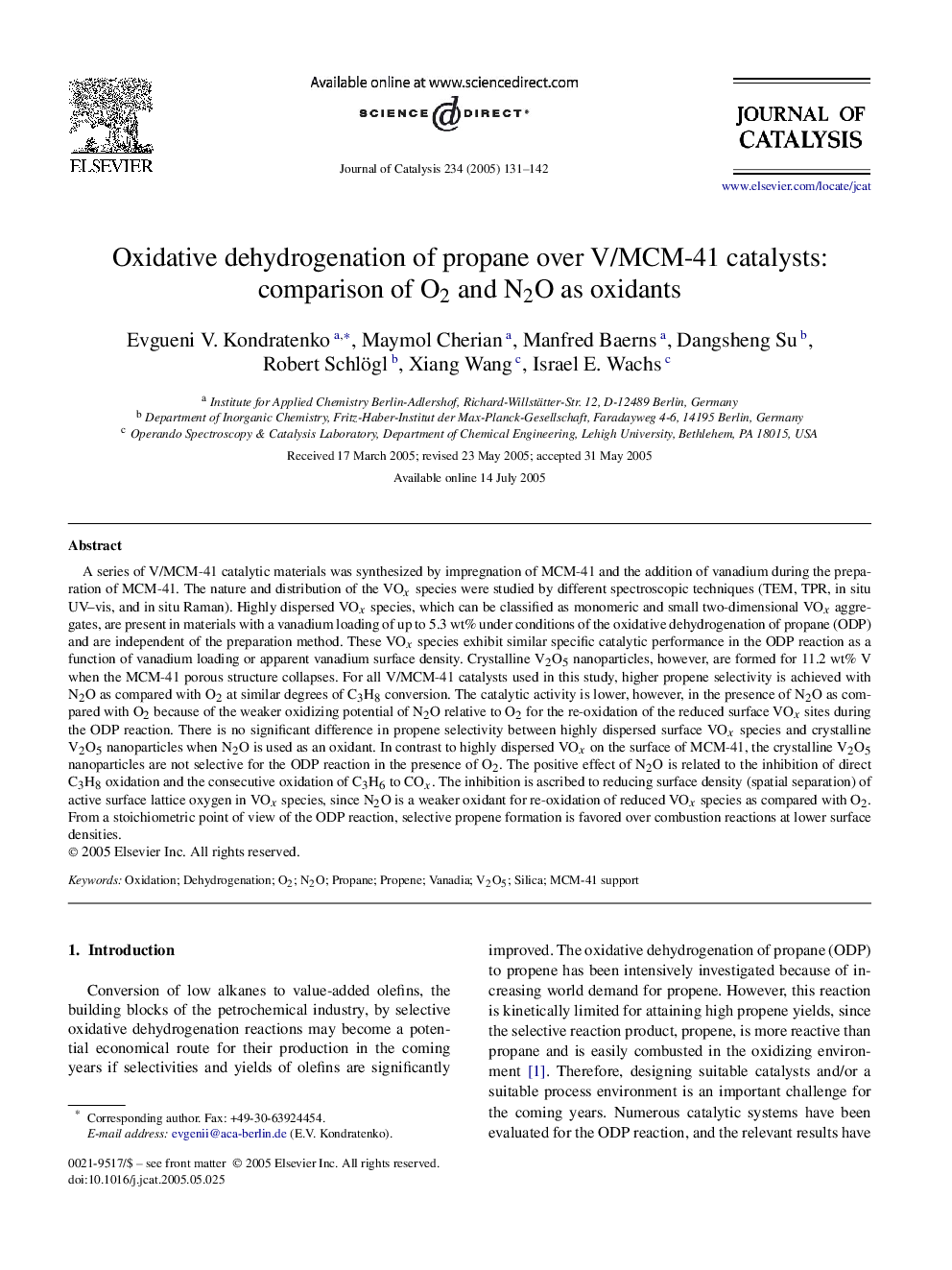| Article ID | Journal | Published Year | Pages | File Type |
|---|---|---|---|---|
| 10244696 | Journal of Catalysis | 2005 | 12 Pages |
Abstract
A series of V/MCM-41 catalytic materials was synthesized by impregnation of MCM-41 and the addition of vanadium during the preparation of MCM-41. The nature and distribution of the VOx species were studied by different spectroscopic techniques (TEM, TPR, in situ UV-vis, and in situ Raman). Highly dispersed VOx species, which can be classified as monomeric and small two-dimensional VOx aggregates, are present in materials with a vanadium loading of up to 5.3 wt% under conditions of the oxidative dehydrogenation of propane (ODP) and are independent of the preparation method. These VOx species exhibit similar specific catalytic performance in the ODP reaction as a function of vanadium loading or apparent vanadium surface density. Crystalline V2O5 nanoparticles, however, are formed for 11.2 wt% V when the MCM-41 porous structure collapses. For all V/MCM-41 catalysts used in this study, higher propene selectivity is achieved with N2O as compared with O2 at similar degrees of C3H8 conversion. The catalytic activity is lower, however, in the presence of N2O as compared with O2 because of the weaker oxidizing potential of N2O relative to O2 for the re-oxidation of the reduced surface VOx sites during the ODP reaction. There is no significant difference in propene selectivity between highly dispersed surface VOx species and crystalline V2O5 nanoparticles when N2O is used as an oxidant. In contrast to highly dispersed VOx on the surface of MCM-41, the crystalline V2O5 nanoparticles are not selective for the ODP reaction in the presence of O2. The positive effect of N2O is related to the inhibition of direct C3H8 oxidation and the consecutive oxidation of C3H6 to COx. The inhibition is ascribed to reducing surface density (spatial separation) of active surface lattice oxygen in VOx species, since N2O is a weaker oxidant for re-oxidation of reduced VOx species as compared with O2. From a stoichiometric point of view of the ODP reaction, selective propene formation is favored over combustion reactions at lower surface densities.
Related Topics
Physical Sciences and Engineering
Chemical Engineering
Catalysis
Authors
Evgueni V. Kondratenko, Maymol Cherian, Manfred Baerns, Dangsheng Su, Robert Schlögl, Xiang Wang, Israel E. Wachs,
